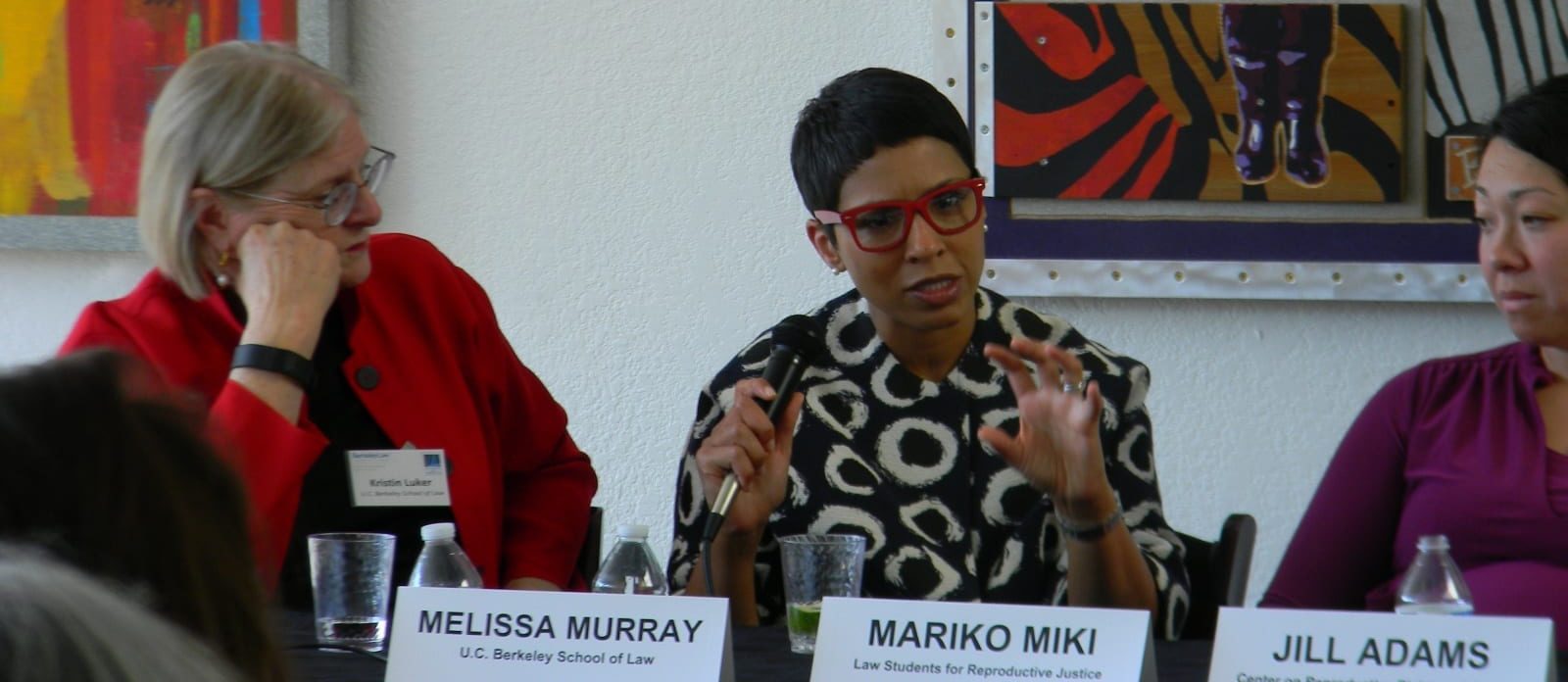CRRJ is harnessing its position as a law school-based center in dialogue with organizers, activists, advocates, and academics, to target complex, controversial issues ripe for fresh perspectives and creative thinking.
The Center will focus on several issue areas that have taken on particular urgency in the wake of the Dobbs decision. These areas include:
- Connecting the abortion right with a broader agenda of reproductive justice. There is widespread understanding, after Dobbs, of the imperative to restore reproductive rights in states that have adopted abortion bans. But unequal access to abortion is only one of the reproductive disparities that face communities of color, those living in poverty or in rural areas, and LGBTQ communities. These systemic inequalities include disparate maternal mortality, lack of access to basic reproductive or gender affirming care, and the ability to parent children with dignity, security, and sufficiency.
- Opposing criminalization of reproduction and bodily autonomy. State involvement in reproductive lives is growing in many arenas. Anti-abortion states have begun criminalizing those seeking abortions and prosecutions have targeted people who suffer miscarriages or stillbirths. Even in pro-abortion states, the reproductive rights of those incarcerated or those using controlled substances have been neglected or curtailed. The post-Dobbs reproductive rights landscape of increased criminalization and threat of punishment for accessing and providing care has also illuminated the many other ways state actors seek to control the bodily autonomy, lives, and reproductive futures of marginalized communities ranging from other pre-existing and emerging laws criminalize sex work, HIV, and gender affirming care.
- Combating the threat posed by anti-abortion state legislatures to democratic processes and democratic voice. Since Dobbs advocates have mobilized broad public support for abortion by leading successful ballot campaigns to place abortion rights in state constitutions. Recognizing the breadth of support for these efforts, anti-abortion state legislatures have sought to restrict the citizen initiative process: by making petitions harder to place on the state electoral ballots, and increasing the electoral thresholds necessary for victory. These anti-democratic moves frequently coincide with and reinforce other state-imposed restrictions on the ballot access, such as: ID requirements; limitations on early voting or voting hours; voter roll purges; or disenfranchisement of those formerly incarcerated or on parole.
- Abolishing the family policing system. Rooted in the legacy of settler colonialism and slavery, the family policing system was designed to separate families and take children from parents the state deemed inadequate, particularly Black, Indigenous, and those living in poverty. The systemic, forced removal of children from their families does not result in an increase in child safety, rather, it has devastating outcomes for children, entire communities, and often reinforces reproductive subjugation of individuals ensnared in the system. CRRJ works towards creating a country where all communities have the right to self-determined family formation free from the punishment and surveillance of the family policing system and with the social and economic support they need to thrive.
- Supporting healthy, dignified, and affirming birthing and postpartum outcomes for all people. Racial disparities and poor pregnancy-related health outcomes experienced particularly by Black birthing people in the U.S. have been well documented and elevated to mainstream political and public health discourse in recent years. In California, though the rate of maternal mortality has declined, the maternal mortality rate for Black women remains 3 to 4 times higher than white women due to obstetric racism and other systemic barriers to care. CRRJ works with birth workers, community-based organizations, health systems, and government agencies to advance law and policy strategies to improve health outcomes for BIPOC and other marginalized birthing people.
(Specific projects TBA)
Left to right: Prof. Kristin Luker, Prof. Melissa Murray, Mariko Miki, at 2015 Panel
